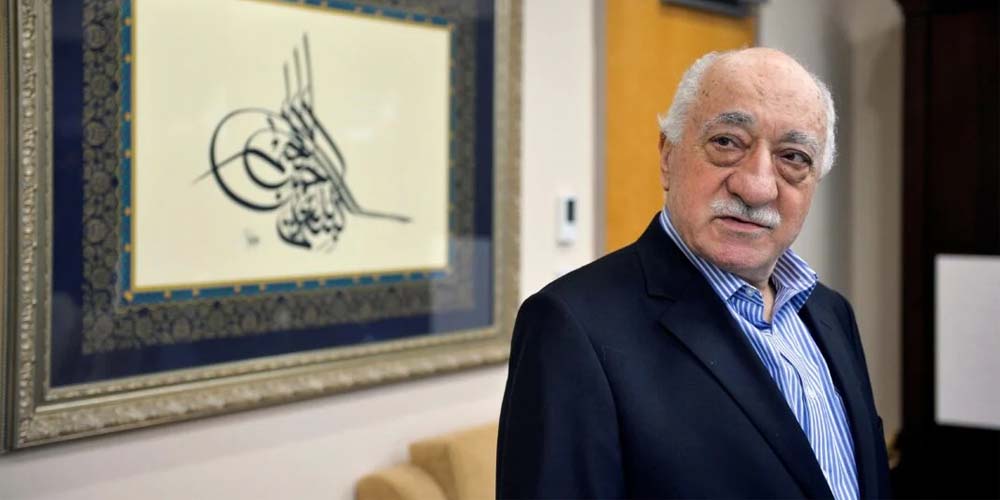The recent disclosure of the will and material legacy of the late Turkish-Islamic scholar Fethullah Gülen has revealed a notarized document that grants the “Cascade Trust” foundation authority over the royalties from the cleric’s books, the TR724 news website reported on Thursday.
Gülen passed away on October 20, 2024, at the age of 83, at a Pennsylvania hospital, and was laid to rest at the compound of the Chestnut Retreat Center, where he had been living and leading his global social movement for 25 years.
According to an announcement by the Gülen-linked Herkul website on X on Thursday, the contents of a white suitcase and a brown bag that Gülen brought from Turkey in 1999 when he moved to the United States were revealed at the Chestnut Retreat Center on October 26 in the presence of family members and close associates.
Among the significant findings from the brown bag was a notarized document that granted the “Cascade Trust” foundation authority over the royalties from Gülen’s literary works, the $20,020 derived from book royalties and $12,640 in quarter gold coins intended as gifts for newborns and newlyweds. The foundation, as described in the document, aims to allocate these funds to organizations within and outside the US that examine and promote Gülen’s teachings.
The scholar wrote more than 70 books, which have been translated into numerous languages around the world.
The contents of the white suitcase included personal items used in daily life, such as a prayer rug, shirt, underwear, towel and handkerchief, as well as an identity card and some medical documents. Various other personal items, including socks, a handkerchief, a sewing kit, a pen, matches, documents related to the residency procedure and a permanent residence card were also found in the brown bag, according to the Herkul website.
Notably, Gülen had set aside $2,000 as a “shrouding” fee, reflecting his wishes for a simple burial. There was also a will written in Ottoman Turkish in the 1960s that requested the payment of certain debts which have since been settled, the Herkul website said.
The statement revealing that Gülen’s total assets amounted to less than $35,000 countered claims by pro-government media that the cleric was wealthy.
Gülen had long been one of Turkey’s most important scholars, with millions of followers in his native country and around the world. His philosophy blended Sufism — a mystical form of Islam — with staunch advocacy for democracy, education, science and interfaith dialogue. His followers built a loosely affiliated global network of charitable foundations, professional associations, businesses and schools in more than 100 countries.
The final decade of Gülen’s life was marked by numerous accusations from the Turkish government, resulting in a significant crackdown on both his actual and perceived followers.
The Turkish government accused him of masterminding corruption investigations in 2013 and a coup attempt in July 2016. Once praised for his movement’s activities in education, interreligious dialogue and charity work, the Turkish government labeled Gülen and his followers as “terrorists” in May 2016.
Gülen and his followers have strongly denied any involvement in the coup or terrorist activities. The government crackdown on the movement’s members continues today in Turkey and abroad, with detentions, arrests and deportations or extraditions of followers from foreign countries.

